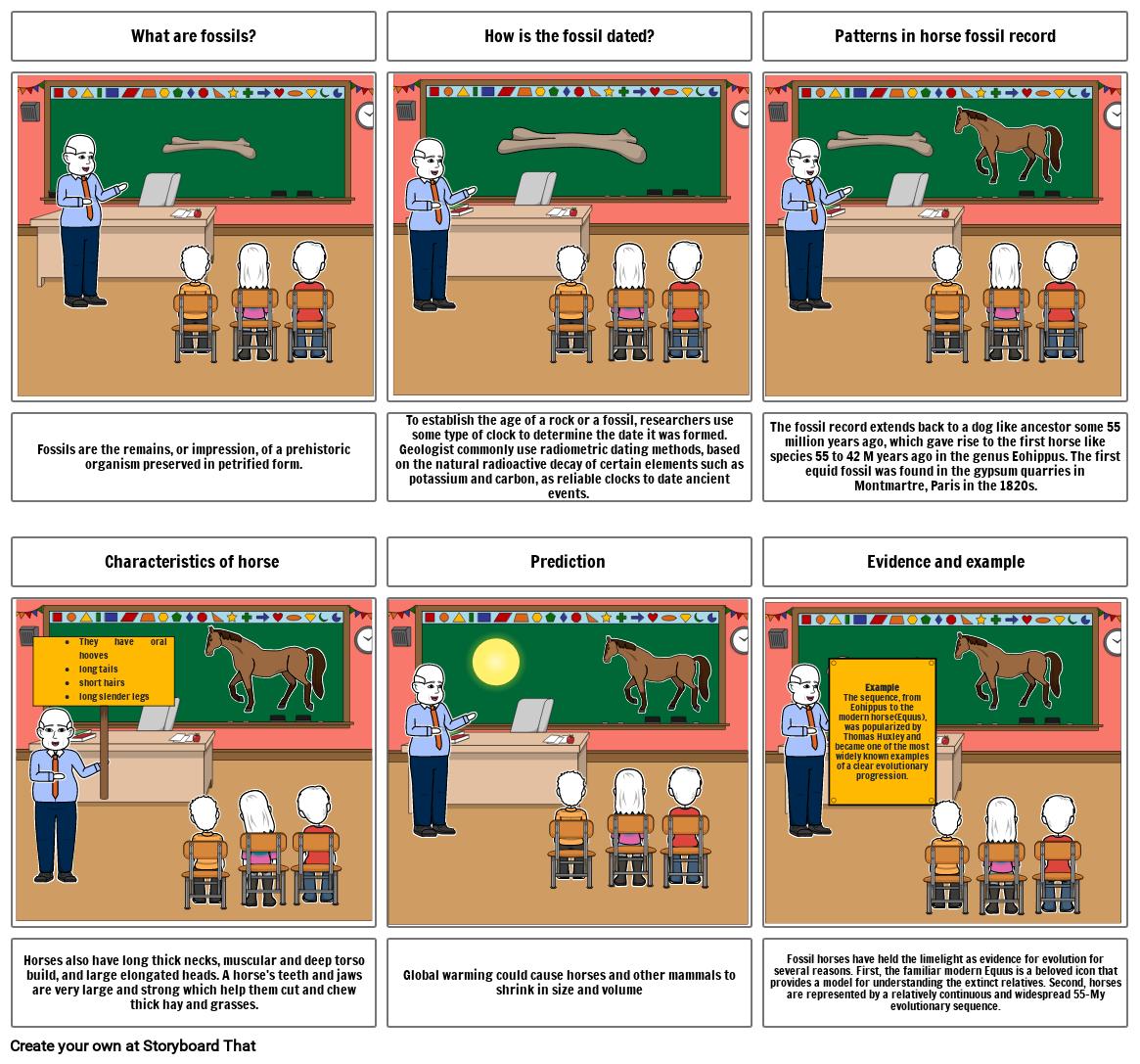fossils

Süžeeskeem Tekst
- What are fossils?
- How is the fossil dated?
- Patterns in horse fossil record
- Fossils are the remains, or impression, of a prehistoric organism preserved in petrified form.
- Characteristics of horse 
- They have oral hooveslong tailsshort hairs long slender legs
- To establish the age of a rock or a fossil, researchers use some type of clock to determine the date it was formed. Geologist commonly use radiometric dating methods, based on the natural radioactive decay of certain elements such as potassium and carbon, as reliable clocks to date ancient events. 
- Prediction 
- The fossil record extends back to a dog like ancestor some 55 million years ago, which gave rise to the first horse like species 55 to 42 M years ago in the genus Eohippus. The first equid fossil was found in the gypsum quarries in Montmartre, Paris in the 1820s.
- Evidence and example
- ExampleThe sequence, from Eohippus to the modern horse(Equus), was popularized by Thomas Huxley and became one of the most widely known examples of a clear evolutionary progression.
- Horses also have long thick necks, muscular and deep torso build, and large elongated heads. A horse's teeth and jaws are very large and strong which help them cut and chew thick hay and grasses.
- Global warming could cause horses and other mammals to shrink in size and volume
- Fossil horses have held the limelight as evidence for evolution for several reasons. First, the familiar modern Equus is a beloved icon that provides a model for understanding the extinct relatives. Second, horses are represented by a relatively continuous and widespread 55-My evolutionary sequence.
Loodud üle 30 miljoni süžeeskeemi

